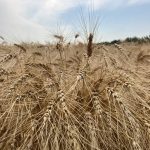The breeze blows up from Georgian Bay and over Ontario’s Blue Mountains, then swirls down a dusty side road and settles on a small farm with the name “Needles” on the mailbox. In a clapboard farmhouse among the pear trees, pig pens and sheep pastures lives acclaimed author and playwright, Dan Needles.
Inspiration surrounds him, literally.
“I’m not a writer as much as a vacuum cleaner,” says Needles, creator of the beloved Wingfield Farm plays. “My brain looks like the top floor of my barn, filled with stuff that someday I’ll pull out and use.”
Read Also

‘No agenda, no attenda’: How to professionalize your family farm meetings
Establishing meeting ground rules can help a farm family find ways to communicate that work for the business and the family.
Needles has hauled out a lot of stuff already. He’s written seven Wingfield plays, including his newest,Lost and Found,which is playing at Toronto’s Panasonic Theatre from January 12 to February 13. Plus there are other plays and a couple of monthly columns, including Country Guide’s Petunia Valley.
Like all the Wingfield plays,Lost and Foundis framed as Walt’s weekly letters to the editor of the local paper. This time, the action is based around a very rural problem, water, and several themes are built around Walt’s difficulty in drilling a well on his farm.
As in the other plays, however, the solution is found in his community of eccentric characters.
It was a problem Needles faced himself. “There’s nothing that stops a farm household faster than a water problem.” he says. “You simply can’t farm without water.”
While drilling a new well on his own place, Needles was amazed by the wide range of personality, skill and sanity of the drillers. “We had a guy up here and supposedly he could witch at the cemetery, tell where the coffins were and which ones died by drowning,” he laughs.
The other major theme in the play is the relationship between farmers and their sons. Don the dairy farmer isn’t speaking to his retired father, a former well driller.
Needles noticed that farmer fathers and sons were either working together every day or would hardly speak to each other. “For years I’ve watched relentless feuds sometime divide families and communities,” says Needles.
Needles resolves both problems with his signature mix of humour, silly predicaments and shots of sentimentality. It’s a recipe that works so well, it makes you wonder if Dan Needles is Walt Wingfield.
”I don’t have Walt’s way of flinging himself off of cliffs,” says Needles. “I’d never try to harness two racehorses to a plough.”
Instead he sorts his ideas out in his columns in Country Guide and Harrowsmith.
“It’s a balance between truth and affection,” he says. “I work for the laugh of recognition.”
Sprung
That love was born in Rosemount, Ont. In 1955, Needles’ mother, a professional writer, moved her four children from the city to the country for six months of the year. His father was an actor and on the road most of the time so young Dan spent many days tailing the men who worked on the neighbouring farms.
“I was raised by a bunch of uncles, grandfathers and fathers along the seventh line,” says Needles. “They pretty much shaped the way I look at the world.”
Some of those farmers later became characters in Letter from Wingfield Farm. The original Wingfield play started as a series of letters Needles wrote while working for a weekly newspaper. He was just 23 years old and fresh out of university with a degree in economics.
Two years later, he was hired as a constituency and legislative executive assistant. Eventually, he took a public relations position with an insurance company in Toronto. While working downtown, Needles bought his pastoral farm and this is where he and his wife have raised their four children.
It never occurred to Needles that he’d earn a living from the theatre. “I ran away from the theatre and ran to insurance,” he laughs. “Strangely I came to the theatre by way of the Petunia Valley side road.”
However, it was on suburban streets where Needles first met Doug and Rod Beattie. They played ball hockey as children, went to university and travelled Europe together. For 24 years, Doug has directed and Rod has starred in the Wingfield shows.
After the first play, Needles and the Beattie boys began exploring the boundaries of the one-man show. For example, some critics said it was limited because Rod couldn’t do women, so in the next plays Dan added women. Today Rod imitates a total of 45 characters of both sexes and all ages in the Wingfield saga.
Needles has been compared to James Herriot, an author he enjoys. He’s also inspired by the soft descriptive prose of E. B. White (author of Charlotte’s Web), Mark Twain’s construction of a joke and Canada’s Stephen Leacock.
Farmers are the heroes
Needles’ greatest inspiration are his neighbours and friends. “My neighbours have always been flattered that they’re interesting enough to be the stuff of literature.”
The farmer across the road and his brother are some of his most productive sources of one-liners. Moreover, his wife is a local farm girl, and as Needles says “is related to almost everybody north of the ninth.” Heath’s his critic, and although she’s not a writer, she loves this community.
There’s even a coffee shop where a group of locals gets together to visit and expound. When Needles walks in the door, a gang of four old timers start up with such enthusiasm that he swears they’re doing it for publication.
“I am personally responsible if tiny bits of this are lost,” he says. “I am the custodian, I have to collect it.”
Needles says that both urban and rural folks crave the voice that comes of out of farming community and he calls it farmer thinking. “It’s that practical matter-of-fact, humble voice that doesn’t have high expectations and tries and tries again.”
He believes the voice is born from having a sense that you’re important to the life around you. “Everyday farmers get up and look after the life around them. It’s what gives them purpose.”
Needles used to mourn the loss of the family farm but started to embrace the possibility that the community was changing into something else and perhaps it wasn’t all that bad. The farmers and their voices are still there, but now they’re doing something else beside raising 25 cows, and the farm families who have stuck with it are generally living better.
Needles has entrenched himself so much into the community that now he has his own farmer voice.
“I’m 59 but I hear that voice every time I pick up a shovel.”CG














